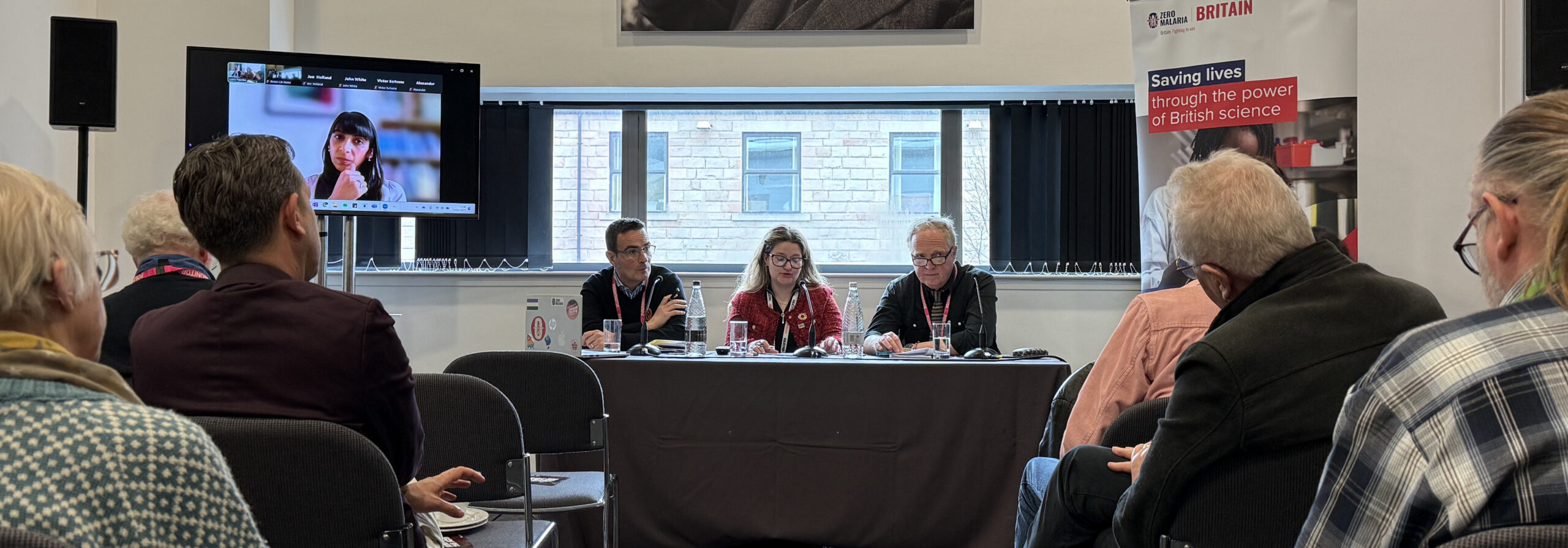Fringe Event at Liberal Democrat Spring 2025 Conference Co-hosted by: Malaria No More UK, Green Liberal Democrats, Liberal Democrats for International Development (LDID), and LibSTEMM
Chair: Lydia Paynter (Malaria No More UK)
Panellists: Lord Jonny Oates, Brian Mathew MP, Dr Mehreen Dattoo (Oxford/Jenner Institute)
Overview
This panel explored how climate change is accelerating global health threats, particularly in low-income countries. With extreme weather events – such as floods – on the rise, the risk of disease outbreaks, including malaria, is increasing. The UK has historically played a leading role in tackling such issues through science, innovation, and international aid.
Key Themes and Insights
- Climate Change & Global Health Risks
- Climate change is shifting the patterns of disease. For instance, malaria is now being transmitted in high-altitude regions in Ethiopia, previously unaffected.
- Malnutrition – exacerbated by climate stress – is increasing vulnerability to disease, especially in children.
- The Importance of Science and Innovation
- The UK took 13 years to develop and deploy the first malaria vaccine, underlining the need for sustained research investment.
- Scientific research should not only focus on children but must adopt a broader, inclusive approach.
- Knowledge sharing, global collaboration, and local engagement are key to developing and deploying effective disease prevention tools.
- Funding Cuts and Their Consequences
- The UK’s reduction in Official Development Assistance (ODA) has already caused significant setbacks.
- A major concern is whether the UK will honour its £9 billion replenishment pledge to the Global Fund.
- Half of the UK’s aid budget is currently being redirected to domestic spending, including refugee support, limiting overseas health programme funding.
- The Role of the UN Sustainable Development Goals (SDGs)
- The SDGs are critical for linking climate, health, and development, and for holding governments accountable.
- However, they are often seen as aspirational rather than actionable. Concrete commitments and delivery mechanisms are needed.
Looking Forward: Solutions and Commitments
When asked what must be done to address these challenges, the panel offered the following:
- Dr Mehreen Dattoo called for sustained, multidisciplinary research and investment, and emphasised the importance of global partnerships and knowledge transfer.
- Lord Oates urged the UK to show leadership, uphold its commitment to 0.7% GNI for aid, and “be the grown-up in the room” during global crises.
- Brian Mathew MP highlighted the urgent need to restore funding and raise public and political awareness of global health threats, including new and re-emerging diseases like Dengue fever.
Audience Engagement Highlights
- Questions raised included how to explore alternative funding mechanisms and how to retain foreign-trained scientific talent in the UK.
- Panellists agreed that stronger partnerships, more effective use of existing funds, and maintaining international collaborations are vital.
Closing Messages
- Dr Dattoo: Disease outbreaks are a global phenomenon and require global responsibility; climate change is a cross-cutting issue that drives migration, hunger, and disease.
- Lord Oates: Personal commitment to global justice stems from witnessing the Ethiopian famine; the UK must remain vocal and proactive on these issues.
- Brian Mathew MP: Climate change and global health must remain priority issues in the political agenda, particularly in the face of growing humanitarian and ecological threats.


Leave a Reply